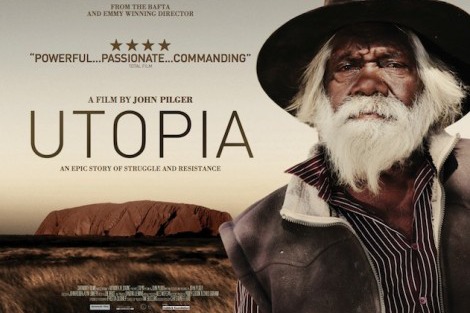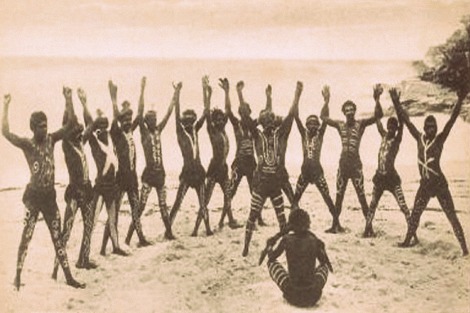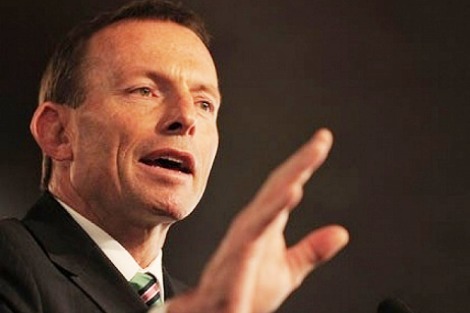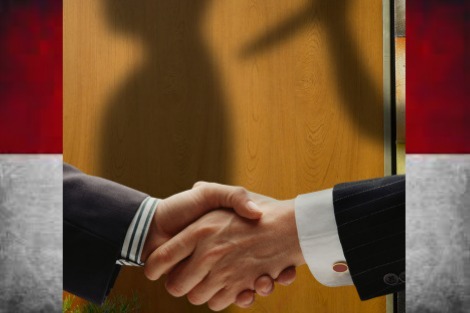Keywords: A Secret Australia
There are more than 200 results, only the first 200 are displayed here.
-

RELIGION
- Neil Ormerod
- 03 April 2014
21 Comments
Damage was done to the reputations of Pell's secretary Dr Michael Casey, and to the solicitors from the his chosen legal team Coors, who would have heard clearly the warning of Justice McClellan that saying they were following their client's instructions would be no defence. There is the damage done to the Australian Church as a whole, and, of course, the damge to Pell himself. This is not how he wanted his reign in Sydney to end.
READ MORE 
-

ARTS AND CULTURE
- Tim Kroenert
- 06 February 2014
13 Comments
Rabble-rousing Australian journalist John Pilger is prone to hyperbole. He refers to a 'concentration camp' located on Rottnest Island and proceeds to denounce the atrocities that occurred there. He conducts a vox pop amid flag-waving Australia Day revellers, goading them with questions about the white invasion with predictably cringe-worthy results. He may have good intentions, but he's not doing Aboriginal Australia any favours.
READ MORE 
-

AUSTRALIA
- Moira Rayner
- 07 January 2014
9 Comments
Gillard is the most prominent woman in our country. She has been repeatedly humiliated, disparaged and ridiculed for that very reason. We may criticise her decisions, but always aware of the context in which they were made, which is dangerously toxic. Her courage under pressure is astonishing, but we ought to despair at her party which is willing itself into annihilation by adding more poison.
READ MORE 
-

ARTS AND CULTURE
- Michael Sharkey
- 17 December 2013
2 Comments
The bird that has no feathers mocks my language. Runs and flaps its wings at me but cannot fly. Throws land-things at me. We laugh like water, make corroboree in sky.
READ MORE
-

INTERNATIONAL
- Justin Glyn
- 06 December 2013
15 Comments
The recent revelations that ASIO raided the offices of Timor Leste's lawyers and detained its star witness just before its case against Australia highlights, once again, the question of the linkage between national and commercial interests. ASIO's governing statute does not permit it to engage in economic espionage. Unfortunately, the distinction between government and commercial interests is growing increasingly hard to draw.
READ MORE
-

ECONOMICS
- Michael Mullins
- 25 November 2013
14 Comments
The prime minister said he 'sincerely regrets any embarrassment that recent media reports have caused' Indonesia's President Susilo Bambang Yudhoyono. Did he mean the media was doing its job and that the embarrassment was collateral damage? Or was he regretting that the media was out of line? Outspoken monarchist Professor David Flint says the government should retaliate against the ABC by reviewing the its overseas broadcasting contract.
READ MORE 
-

INTERNATIONAL
- Bill Calcutt
- 25 November 2013
6 Comments
The recent observation by a close Asian ally that 'spying on friends is amoral' belies an apparently growing gap between the illusion of civility and honesty and the reality of our suspicious relations with 'foreigners'. While the justification for the development of ubiquitous electronic surveillance capabilities is counter-terrorism, the greatest beneficiaries may be private business interests gaining a competitive advantage in a global free market.
READ MORE 
-

AUSTRALIA
- Andrew Hamilton
- 25 November 2013
12 Comments
A minor diversion in the disruption of Australia's relations with Indonesia has been the entanglement of political commentators. Many have wriggled on the hook of their conviction that international relations are an ethics free zone in which the only guiding star is national self interest. But that does not stop them from launching a raft of ethical judgments. It is worth considering on what ethical principles international and national politics might rest.
READ MORE 
-

AUSTRALIA
- Edwina Byrne
- 12 September 2013
3 Comments
Malcolm Turnbull's justification for calling for the introduction of electronic voting is that roughly six per cent of voters failed to correctly fill in their ballot papers on Saturday. Electronic voting would stop this senseless waste. Ignoring the fact that electronic voting would disenfranchise the roughly 5.9 per cent of voters whose democratic wish is to draw male appendages on their ballot, Turnbull has a point.
READ MORE 
-

ARTS AND CULTURE
- Barry Gittins and Jen Vuk
- 23 August 2013
3 Comments
Chopper's a racist, self-billed sociopath with acknowledged mental and physical health issues and a highly evolved if bizarre set of moral principles. A raconteur ever-ready to discuss the robbing, bashing, torture, murder and disappearance of various peers and colleagues. Yet he is also a man who recognises the damage done by the spiritual, emotional and physical abuse he took as a child.
READ MORE 
-

RELIGION
- Irfan Yusuf
- 21 August 2013
9 Comments
It’s a crude and misleading line of reasoning to declare that Egypt's Muslim Brotherhood can’t be committed to democracy because it is an Islamist organisation much like al-Qaida and Hezbollah. On what basis do we label individuals or groups 'Islamist'? Or 'fundamentalist'? Or 'extremist'? How can we have a monolith amongst a set of congregations making up almost one quarter of the world's human population? The history and politics of Islam is just as complex as that of Christianity.
READ MORE 
-

INTERNATIONAL
- Bill Calcutt
- 09 August 2013
1 Comment
Since the turn of the millennium several major technology-enabled developments have significantly altered the balance between national security and civil liberties. In Australia, the hyper-politicisation of national security finds voice in the discourse on the issue of border security, turning a complex humanitarian and policing challenge (asylum seekers arriving by sea) into an enormously controversial and expensive imbroglio.
READ MORE 